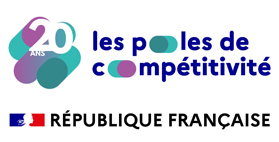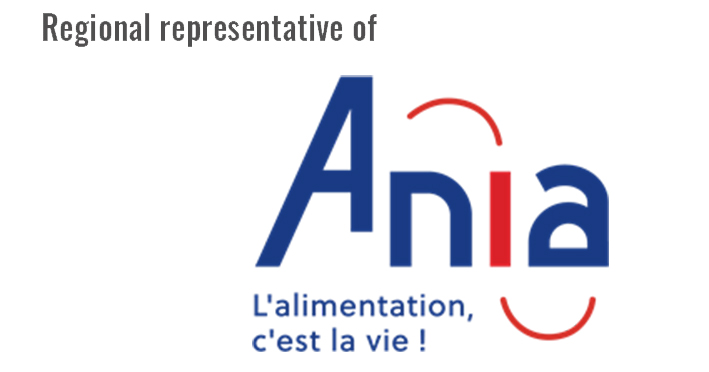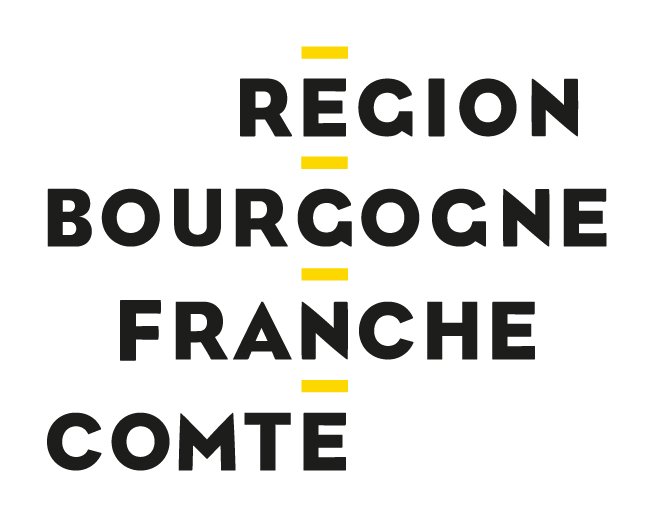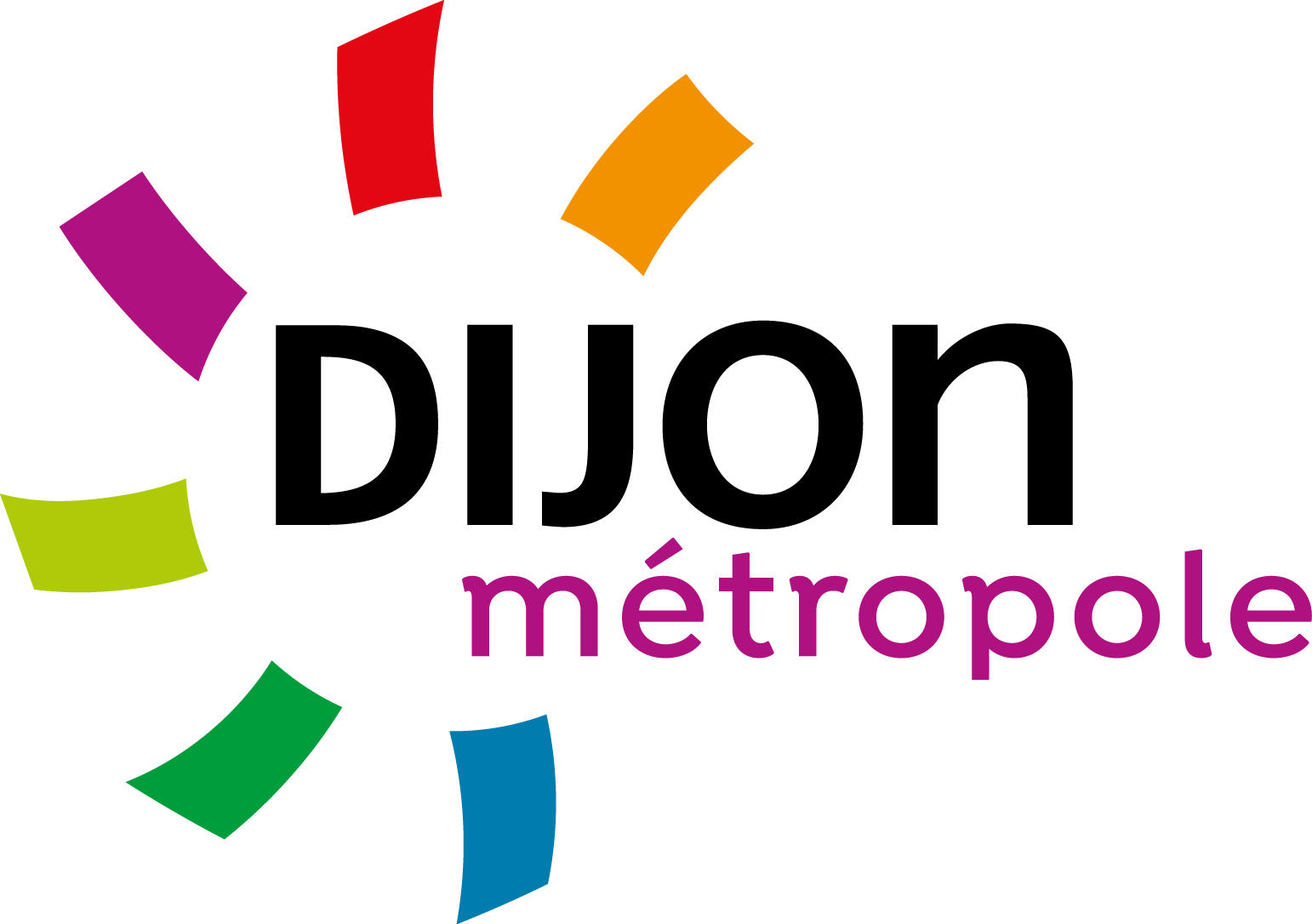15 May 2020 / The experts of the Vitagora ecosystem / Vitagora publication / Science and technologies
Solid state fermentation: a solution for improving and adding value to food
This article is also available in French:
Why this should interest you?
- Solid state fermentation (SSF) is a natural process that takes place without any chemical additives, unlike liquid state fermentation.
- Using less water and energy, SSF is a more economical process than liquid state fermentation. Depending on the molecules produced, the volumetric productivity is significantly higher. As sterilisation of the substrate is not necessarily required, investment in equipment can be lower.
- SSF can be used to enrich ingredients in nutrients, especially in plant-based matrices.
- SSF can be used to upcycle agricultural or food manufacturing byproducts.

Cheese, bread, soy sauce, aromas, pigments ... did you know that all these products are produced thanks to solid state fermentation?
Solid state fermentation (SSF) is one of the oldest existing techniques in the world for preserving and fermenting foods. However natural and cost-effective it may be, it is little used in Europe.
As a consequence of ongoing environmental pressure (preserving resources, reducing waste, rejection of petro-sourced products) and the growing demand from consumers for "clean label" and plant-based alternatives, SSF is receiving renewed interest from food manufacturers. Whether for adding value to agrifood byproducts, producing functional foods or natural additives... many applications are possible.
How does solid state fermentation work? What are the advantages? What are the possible areas of application for food business?
Stéphanie Sutter, R&D engineer with SAYENS, provides the answers.
Stéphanie Sutter
Having obtained a PhD in biology, Stéphanie Sutter joined Welience (today renamed Sayens) in 2010 in the post of R&D engineer within the biotechnology pre-development platform. She is particularly interested in process development and the optimisation of solid state fermentation cultures from the lab test phase to the pilot phase, as indicates her thesis topic, "Recycling of rapeseed oilcake by solid state fermentation for application in animal feed".
Sayens
SAYENS is a public company specialised in technology transfer, created in 2013 with the goal of accelerating industry access to the research results and skills of 9 public research establishments in the Burgundy-Franche-Comté and Grand Est regions of France (Universities of Burgundy, Lorraine and Franche-Comté, as well as AgroSup Dijon, UTT, UTBM, ENSMM, INSERM, and CNRS).
SAYENS carries out its knowledge transfer activities in two main areas:
- Providing companies with innovative technological solutions
- Overseeing the set-up and execution of R&D contracts, studies and expertise between companies and the research laboratories of the Dijon university campus.
Their areas of expertise are the following:
- Materials, processes, chemistry
- NTIC and nanotechnologies
- Agrosciences, natural resources and the environment
- Health, medical devices
- Human and social sciences
Solid state fermentation: an ancient technique
Used for centuries in Asia, SSF is employed in the production of traditional products such as soy sauce, sake or tempeh. It consists of cultivating microorganisms, most often filamentous fungi, in solid substrates (rice, soy, wheat germ etc.).
While it is less widespread in the West, the process is used in the production of bread (yeast) and for the aging of cheeses. "Historically, solid state fermentation is not well-known in Europe for a number of practical reasons. Scientists tended to use tanks adapted to liquid processes that they had access to. And there was a lack of equipment manufacturers in Europe and skills for controlling the process that meant that SSF faded into the background," Stéphanie explains.
A convergence of a number of factors - consumer pressure for more natural and sustainably produced foods, progress in the production of pilot and industrial equipment, a demand for functional foods etc. - has pushed agrifood businesses to once again look to the potential of solid state fermentation.

Why you should choose to use solid state fermentation?
A natural an sustainable method
General speaking, SSF is a more sustainable process than liquid state fermentation. It produces less effluent and uses less water and energy. While liquid state fermentation takes place 100% in water, SSF only requires 50-70% water mixed with 30-50% plant substrate. "It is also a completely natural process. Unlike liquid state fermentation, SSF doesn't take place in a synthetic medium. This makes it a particularly useful method for food manufacturers seeking "clean label" ingredients," Stéphanie concludes.
More economical
"SSF does not require a sterilisation process and the drying of the finished product can take place in the same reactor. This represents significant savings for companies in terms of material investments," adds Stéphanie, while insisting on the volumetric productivity of SSF, "from 10 to 100 times greater than liquid state fermentation, according to the specific molecule targeted."
And in practice?
From the test-tube to the factory
While the advantages of SSF may be attractive, what are the practical solutions to get underway? "In the case of our R&D parnerships within Sayens, we collaborate with food companies for their process or product innovation projects. As technology experts, our role is to test, improve, evaluate and develop a solution. We are used to saying that we provide support from the test-tube to the factory," explains Stéphanie. "As we are supported in turn by the expertise and scientific resources of the University of Burgundy and AgroSup Dijon, (in particular the biotechnologies pre-development platform), we are able to provide companies with guidance over the whole development path of their project: proof of concept, industrialisation, equipment advice, site visits etc.".
Areas of application
Food (human and animal food, "clean label" ingredients), biomedical, bioenergy, biopolymers, biostimulants etc.
There are many areas of application for SSF and it can provide significant added value. "The process allows us, for example, to improve the nutritional qualities of primary products - digestibility, protein enrichment, vitamins, minerals etc."
SSF also increases options for recycling of agrifood byproducts. "The fermentation of plant byproducts such as beet pulp or wheat germ - cheap and abundant primary products - can be used to produce biofertilisers. Fermentation can also be used to produce a strong concentration in microorganisms, in particular spores that, once in the soil, support plant development via their metabolic activities," explains Stéphanie. An excellent means of creating value and sustainable solutions from materials otherwise considered worthless.

Byproduct recycling: the example of rapeseed oilcake
Animal feed can include GMO soy oilcake from American or Brazilian manufacturing. This feed source poses a number of problems for French industry, most notably the dependance on foreign imports of soy and consumer rejection of GMO materials in the meat sector food chain. In parallel, food manufacturing in France generates a number of byproducts with a potential for recycling.
Take the example of rapeseed in animal feed. Originally, this feed source was cheap but nutritionally inferior to soy as it contains less protein (34% compared to 45% for soy). "Thanks to a SSF processing, the nutritional and technological properties of rapeseed were significantly improved: an increase in protein (up to 45% like soy) and an improvement of the digestibility through the enrichment in enzymes. The process allowed us to show proof of a biological activity (now patented) that stimulated immune defense and limited the mortality rate of young farm animals," Stéphanie explains. "We tested around 40 microorganism strains to select the most effective ones in order to get the required result. An Aspergillus strain was selected as it presented the greatest number of advantages on an industrial scale: rapid development, incolum [spores] that were easy to store and obtain, a resistance to agitation and a large pH range."
"With consumers searching for natural and functional foods, SSF holds a number of cards to interest agrifood businesses," concludes Stéphanie. "Did you know that using SSF can even allow you to produce foods enriched in antioxidants and cholesteral-lowering compounds?"
Keywords
Fermentation, solid state, byproduct recycling, industrialisation, protein, functional foods, enrichment, food processing, innovation, naturality
|
Go further...To find out more about Stéphanie Sutter's and Sayen's expertise, contact me, Elodie da Silva: elodie.dasilva@vitagora.com
As a food engineer, I lead the "Innovation & Ecosystem" team of Vitagora in providing support for agrifood business innovation goals, with enthusiasm, professionalism and confidentiality. |
Further reading
- Stéphanie Sutter, France Thevenieau, Anne Bourdillon et Joëlle De Coninck (2016) Immunomodulatory Properties of Filamentous Fungi Cultivated through Solid-State Fermentation on Rapeseed Meal, Applied biochemistry and biotechnology
- https://www.sayens.fr/




 Home
Home



















